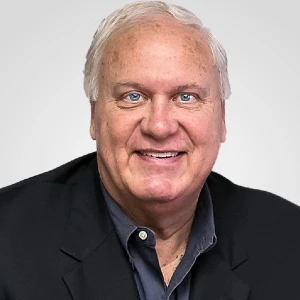The landscape of higher education is evolving rapidly, and several emerging trends demand our immediate attention. In Indiana, for instance, the college-going rate has plummeted to 51.7%, a stark decline from 65% just a decade ago. In Tennessee, the college-going rate for the class of 2023 is 56.7%. In 2024, Florida’s college enrollment rate for 18- to 24-year-olds was 39%, according to the National Center for Education Statistics.
This drop is alarming, as it signals a shift in the aspirations of young adults. It raises crucial questions about the future of a state’s workforce and economy.
Several factors contribute to this decline, with financial barriers being a prominent concern. Despite tuition freezes aimed at making college more accessible, many students find that financial aid has not kept pace with rising costs. This disconnect can deter prospective students, leaving them uncertain about their educational futures.
Recent changes in high school diploma requirements have prioritized work-based learning over traditional college readiness. This shift reflects a broader societal trend that appears to devalue the importance of higher education.
The long-term implications of declining college enrollment could be profound. A less educated workforce may struggle to meet the demands of an increasingly complex job market, ultimately hampering economic growth. As fewer young people pursue higher education, the state risks falling behind in innovation and productivity, which could have ripple effects across various sectors.
The Bureau of Labor Statistics projects a 10% growth in trade-related jobs by 2032, outpacing many white-collar professions. This trend is reflected in high school graduates’ choices, with 32% opting for vocational paths in 2023, up from 25% in 2018. Contributing factors include lower costs of trade programs, shorter timelines to enter the workforce, and social media’s role in improving perceptions of trades as viable career options.
In parallel, a cultural shift is underway among younger generations, particularly Generation Z. Jonathan Haidt, in his book The Anxious Generation, discusses how an overemphasis on safety, termed “safetyism,” has led to heightened anxiety and lower resilience among young people. This generation is actively redefining what constitutes a “safe” career, moving away from traditional paths like college degrees and corporate jobs.
The recently publishedGen Z Reroute Reportby Zety reveals startling insights into how AI and economic uncertainties are shaping the career choices of this demographic. With 65% of Gen Z expressing skepticism about the protective value of a college degree against AI job losses, it’s clear they are reconsidering their future. Additionally, 43% have adjusted their career plans in response to AI’s potential impact, and more than half (53%) are seriously considering blue-collar or skilled trade careers.
Career expert Dr. Jasmine Escalera calls this trend the “AIxiety Pivot,” as young professionals adjust their paths toward more stable opportunities. Influenced by social media and family support, Generation Z is actively upskilling and moving into industries that promise stability amid rapid technological change.
The implications of these findings invite a broader conversation about the future of work. As we navigate this evolving landscape, educators, policymakers, and employers need to engage with these trends and consider strategies that better align educational opportunities with the realities of the job market.
The decline in college enrollment and the rise of alternative career paths among Generation Z highlight an essential moment for society. We need to ensure higher education remains appealing while also supporting the diverse pathways young people are choosing today. Policymakers and stakeholders need to keep track of the changing nature of work.
JC Bowman is contributing education, editor for Tri-Star daily and the executive director of Professional Educators of Tennessee

















